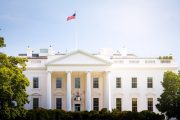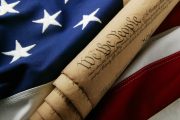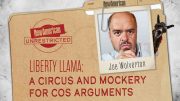
For example, both had very modest beginnings. Francis Lewis was born in Wales in 1713, and orphaned early in life. Rising above his circumstances, he became a successful merchant. Even though shipwrecked twice off the Irish Coast, Lewis survived and succeeded in foreign trade, traveling much of the world by sea. In the New World, while serving England in the war with the French and Indians, he was captured by General Montcalm, who violated a surrender agreement and turned him over to France’s allies, the Indians, to torture and kill. He survived by skillful negotiation in Welch, a language providentially similar to the indians’ dialect.
Burress was born in Virginia into a single-parent home and never met his absentee father until he was 21. When his mom died when he was 24, he undertook the responsibility of taking care of his younger brothers, Ricardo and Carlos, while living with five of his childhood friends — all of whom are now dead or in jail.
Burress attended Michigan State where he excelled as a football player, and entered professional football with the Pittsburg Steelers in Pennsylvania in the 2000 NFL draft. He became a starter in 2001. He had subsequent legal encounters with tax authorities while living in Pennsylvania and Florida, but those did not result in any convictions. Certainly a flamboyant and vocal player, he quit the Steelers after a disappointing season in January 2005 and signed a contract in March of that year with the New York Giants. It is here he found his greatest moments in Superbowl XLII.
Both men came to New York from elsewhere, yet resided in the state during the performance of their most prominent deeds. Additionally, both experienced deep personal problems in the Empire State. In 1775, during the War for Independence, Lewis’ home on Long Island was plundered by a party of British soldiers. His extensive library and valuable papers of every description were destroyed, and his wife was taken prisoner. She was closely confined in horrible conditions for months, without a bed or change of clothes. Her confinement destroyed her health, and she died about a year later. Lewis’ later life was spent in poverty, his fortune sacrificed in his patriotism.
Burress’ current troubles began when he imprudently handled a 9mm handgun while seated in a New York nightclub. This resulted in an accidental discharge, striking Burress in the thigh. No one else was hurt. A friend and fellow player, linebacker Antonio Pierce, transported him to a hospital where a team doctor treated his wound. Subsequently, Burress was suspended from the Giants and was charged with "possession of an illegal firearm." Pierce too has been threatened with firearms charges, suspension, and other legal action for his role in the accident. Burress gained substantial public attention because of the firearms incident.
Likewise, Lewis gained much public attention because of firearms. Lewis purchased provisions and clothing for the Continental Army and imported military stores, particularly arms and ammunition to New York. His commercial experience enabled him to render many valuable services to his new country.
There the similarities end. The contrast between how each man was treated by the city of New York for essentially doing the same thing, providing arms in case of trouble, could not be more striking. Lewis had a high school and a street named after him – Francis Lewis Boulevard, a main thoroughfare. Burress is looking at a possible three and one-half to 15-year prison sentence, though there is no evidence that Burress is a convicted felon or hardened criminal, or a dangerous citizen deserving of punishment beyond the grief already suffered in the accident that has brought him low.
Their treatment signifies a glaring change in Americans’ understanding of liberty. Though there were many incidents that led to the War for Independence, the flashpoint came with the clear intention of the British government and military to seize powder, cannon, and shot from private storehouses at Lexington and Concord — to remove from the people the ability to defend themselves.
The reality is that Francis Lewis became a national hero in New York for using his skills in furthering armed resistance to tyranny and specifically the effective purchase and distribution of firearms in the name of liberty. Burress, owing to an unfortunate accident with a firearm he possessed for self-protection, faces imprisonment under the current laws of the State of New York, which clearly ignore the safeguards of the Second Amendment, for the simple possession of what an AP writer and the New York law describe as an "illegal firearm."
I wonder what Francis Lewis would say? Or for that matter, any of our founding heroes, Patrick Henry, George Washington, Samuel Adams? I wonder if the concept of an "illegal firearm" would not bring to their minds the intended tyranny that caused them to take up their own arms?
A shocking observation from the Yahoo News version of the Associated Press article by Tom Canavan is that not one of Burress’ teammates, commentators, the teams owners, managers, or spokesmen, or any of the others cited seem to find any issue with the basic unconstitutionality of the law involved. All the criticism is leveled at Burress. The idea that government has the power to totally disarm American citizens and remove any individual’s ability to defend himself and his property has become so entrenched as to become assumptive.
Burress’ season is ended, his reputation is further damaged, and his health impaired. He will lose an estimated $800,000 to $1.8 million as a result of the accident and his subsequent suspension, not to mention future earnings. That’s quite a fine for an accidental discharge that harmed only Burress. But the larger question is the one of freedom and the Bill of Rights. Is Burress less deserving of constitutional guarantees of liberty than Francis Lewis? And has American liberty begun to disappear forever?
(AP Images)




